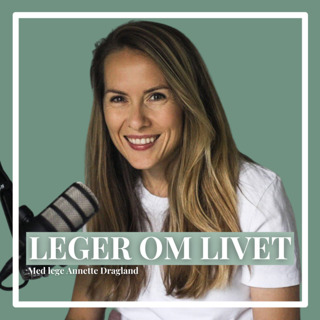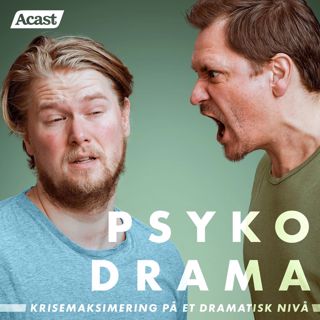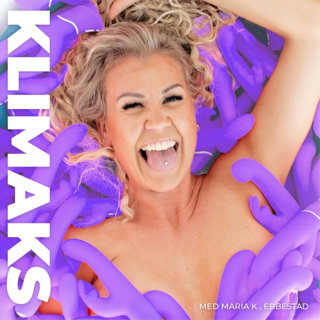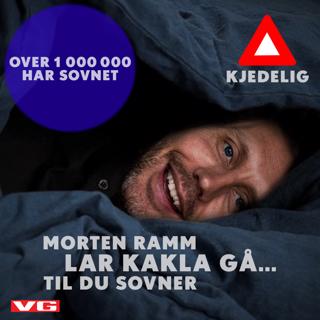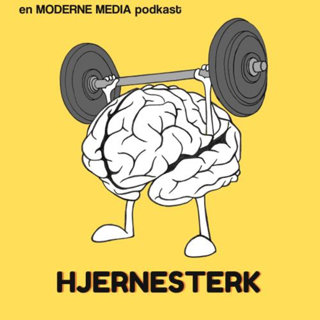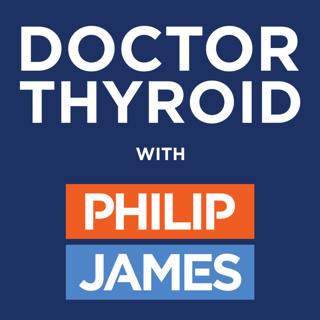
95: Hypothyroidism and Combination Therapy of T3 and T4 with Dr. Martin Milner from Portland, Oregon
Dr. Milner is well published with texts, medical journal articles and studies in cardiology, endocrinology, pulmonology, oncology, and environmental medicine. Dr. Milner calls his practice “integrated endocrinology” balancing all the endocrine hormones using bio-identical hormone replacement and amino acid neurotransmitter precursors. Dr. Milner’s articles include treatment protocols for hypothyroidism, ”Hypothyroidism: Optimizing Medication with Slow-Release Compounded Thyroid Replacement” was published in the peer review journal of compounding pharmacists, International Journal of Pharmaceutical Compounding. In this interview, the following topics are discussed: Starving in the midst of plenty Slow release T3 and T4 Hypothyroidism Hyperthyroidism or Graves Disease Often RAI leads to hypothyroidism Visiting a naturopath while being treated by traditional endocrinologist TSH suppression for thyroid cancer patients Ordering blood tests of TSH, Free T4, Free T4, and reverse T3 Converting T4 into T3 Slow released T3 Manufactured T3 is not slow release 2005 article was published 150,000 pharmacist in U.S., and about 5,000 are compounding Slow release blends are the same T4 from Synthroid and T3 from Cytomel Slow release agent is hydroxypropyl melanose Side effects of too much T3 or T4 The risk is compounder error or inconsistency Binder sensitivity is another reason for compounding Desiccated thyroid hormone compared to slow release Auto-immune disease and desiccated treatment Overwhelming response to slow release is when patients symptoms of hypothyroidism alleviate A small percentage of people do not do better on slow release Basel body temperatures 96.5 temperature in the morning, and hypothyroid symptoms is a concern in regard to treatment Testing temperature in the morning, ideally done using mercury thermometer How to use temperature testing as an indicator of hypothyroidism Body temp should be over 97.8 first thing in the morning Hypothyroidism will be overweight and difficult to lose weight, and brain fog, sluggish, dry skin, hair loss, Eating well, active, and weight gain Hypoglycemic or adrenal overload and low body temperature High cortisol levels Standard of care of Cytomel in contrast with conventional endocrinologist T3 has a short half life Half life — How long does it take a drug to bring blood levels to normal levels? Half life of T3 is up to 70 days Starving in the midst of plenty with T4 Insurance coverage of slow release T3 — T4 Cost of slow release T3 — T4 is approximately $40 monthly Most important testing for TT patient is checking parathyroid gland status — and their role in calcium function Important to measure calcium for TT patients Caution about soy, broccoli, brussel sprouts, cauliflower, and calcium and thyroid hormone When to thyroid replacement hormone — first thing in the morning, 1 hour before eating, T4 replacement before bed — advantages to more stable levels Slow release, combination therapy, should be taken in the morning Estrogen deficiency Brief summaries of the following symptoms: painful feet, dizziness, fatigue, hair loss, iron deficiency, chronic pain, tyrosine turning into dopamine and then adrenaline, sleep problems and anxiety and hypothyroidism, insomnia and cortisone and adrenaline at nigh and DHEA, cortisol measured throughout the day, muscle spasms, Avoid refined sugar and high amounts of alcohol Drink more water Caution: food and its importance: smoothies and soluble fiber — fiber interacts with nutrients. Avoid this, as it effects absorption of medications Emotional attachment to disease — fixation and complaining without making changes. NOTES International Academy of Compounding Pharmacists 75: Fat, Foggy, and Depressed After Thyroidectomy? You May Benefit From T3, with Dr. Antonio Bianco from Rush University 19: Hypothyroidism – Moving From Fat, Foggy & Fatigued to Feeling Fit & Focused with Elle Russ Hypothyroidism: Optimizing Therapy with Slow-Release Compounded Thyroid Replacement
20 Jan 202144min

91: Thyroid Cancer Patients Report Poor Quality of Life After Diagnosis and Treatment → Dr. Aschebrook and Dr. Grogan from UChicago Medicine
The 5-year survival rate for invasive thyroid cancer is 97.9%, and the 10-year survival rate is more than 95%, according to the National Cancer Institute. This leads some people to refer to it as a "good cancer." “The idea behind that ‘good cancer’ statement is a positive one,” said study co-author Raymon Grogan, MD, Assistant Professor of Surgery at the University of Chicago Medicine, in Chicago, IL. “It is physicians trying to make people feel better. But, I think it’s had the opposite effect over time.” The number of thyroid cancer survivors is rising rapidly due to the combination of an increasing incidence, high survival rates, and a young age at diagnosis, according to Dr. Grogan and co-author Briseis Aschebrook-Kilfoy, PhD, Assistant Research Professor in Epidemiology at the University of Chicago Medicine, who lead the North American Thyroid Cancer Survivorship Study (NATCSS). The incidence of thyroid cancer will double by 2019 and thyroid cancer survivors could soon represent up to 10% of all cancer survivors in the United States, the researchers predicted. But there’s a difference between surviving and living happily ever after. Once treatment is over, thyroid cancer survivors then face a high rate of recurrence and an anxiety-filled lifetime of cancer surveillance. When the researchers heard clinic patients express these survival concerns firsthand, they sought to study this poorly investigated area. The investigators recruited 1,174 thyroid cancer survivors whose mean time from diagnosis was 5 years (89.9% were female, average age was 48), and evaluated their quality of life using a questionnaire that assessed physical, psychological, social, and spiritual wellbeing on a 0-10 scale, with 0 being the worst. Survivors of thyroid cancer reported worse quality of life—with an average overall score of 5.56 out of 10—than the mean quality of life score of 6.75 reported by survivors of other cancer types (including colorectal and breast) that have poorer prognoses and more invasive treatments. “I think we all have this fear of cancer that has been ingrained in our society,” Dr. Grogan said. “So, no matter what the prognosis is, we’re just terrified that we have a cancer. And, I think this [finding] shows that.” Thyroid cancer survivors who were younger, female, less educated, and those who participated in survivorship groups all reported even worse quality of life than other study participants. However, after 5 years of survival, quality of life gradually began to increase over time in both women and men, the researchers found. In order to further understand the psychological wellbeing of the growing number of thyroid cancer survivors, the researchers plan to continue to follow this cohort for the long term. NOTES Briseis Aschebrook-Kilfoy Raymon Grogan, M.D., MS, FACS Thyroid cancer patients report poor quality of life despite 'good' diagnosis Why do thyroid cancer patients report poor quality of life despite a high survival rate?
19 Jan 202146min

78: La Palabra Cáncer es Engañosa — No Es Tan Mortal Como Antes, con el Doctor Antonio Hakim desde Bogotá
En esta entrevista hablamos sobre: El nombre del cáncer ha cambiado La tasa de supervivencia con cáncer ha cambiado para mejor La mitad tiene nódulos, muchos de ellos tendrán cáncer 10% de esos tienen cáncer No es necesario operar con todo el cáncer de tiroides 2.5 millones de personas en Colombia tienen cáncer de tiroides No biopsia todos los nódulos ¿Qué es la fobia al cáncer? Lo que no sabemos no nos perjudicará No biopsiar pequeños nódulos tiroideos BETHESDA IV en inconcluso La vida sin tu tiroides cambia tu vida, para peor en la mayoría de los casos A veces ocurre piel seca y peso Problemas de calcio Cambio de voz después de la cirugía de tiroides No todo el cáncer es fatal Dr José A. Hakim -- Manejo quirúrgico actual del cáncer de cabeza y cuello Dr. Antonio Hakim
19 Jan 202123min

73: The Aggressive Mission to Find Cancer is Going Too Far? with Dr. Gilbert Welch from The Dartmouth Institute
H. Gilbert Welch, MD, MPH An internationally recognized expert on the effects of medical screening and over-diagnosis Dr. Gilbert Welch’s work is leading many patients and physicians think carefully about what leads to good health. For Welch, the answer is often “less testing” and “less medicine” with more emphasis on non-medical factors, such as diet, exercise, and finding purpose in life. Welch’s research examines the problems created by medicine’s efforts to detect disease early: physicians test too often, treat too aggressively, and tell too many people that they are sick. Most of his work has focused on overdiagnosis in cancer screening: in particular, screening for melanoma, thyroid, breast, and prostate cancer. He is the author of three books: Less Medicine, More Health: 7 Assumptions That Drive Too Much Health Care (2015), Overdiagnosed: Making People Sick in the Pursuit of Health(2012), and Should I Be Tested for Cancer? (2006). His op-eds on health care have appeared in numerous national media outlets, including the Los Angeles Times, The New York Times, the Washington Post, and the Wall Street Journal. Welch is a professor of medicine at the Geisel School of Medicine, an adjunct professor of business administration at the Tuck School of Business, and an adjunct professor of public policy at Dartmouth College. He has initiated and taught courses on health policy, biostatistics, and the science of inference. In this episode, the following topics are discussed: overdiagnosis is about how its found, and is a side effect of screening when screening for early forms of cancer some cancer is never going to cause the patient problems some cancer never becomes clinically evident we are looking so hard for cancer, that there is more than is possible birds, rabbits, turtles can’t fence in birds or aggressive cancers rabbits you can catch if you build enough fences turtles aren’t going anywhere anyway certain organs have a lot of turtles, prostate, lung, thyroid, breast ovedrdiagniosis only occurs when we are trying to look for early forms screening can benefit, but also cause harm breasts, prostate, and thyroid carry a lot of cancers. overcoming cancer phobia, and reducing patient anxiety. the best test is not the one that finds the most cancers, the best test is to find the ones that matter paradigm shift is happening in regard to cancer. liquid biopsies, looking at biomarkers CA125 NOTES H. Gilbert Welch, MD, MPH Less Medicine, More Health: 7 Assumptions That Drive Too Much Health Care (2015) Overdiagnosed: Making People Sick in the Pursuit of Health(2012) Should I Be Tested for Cancer? (2006) Patient Resources American Thyroid Association
17 Jan 202137min

93: Has anything changed in the past 50 years of treating thyroid disease? (including thyroid cancer) The answer is yes. → Dr. Leonard Wartofsky from MedStar
Dr. Leonard Wartofsky is Professor of Medicine, Georgetown University School of Medicine and Chairman Emeritus, Department of Medicine, MedStar Washington Hospital Center. He trained in internal medicine at Barnes Hospital, Washington University and in endocrinology with Dr. Sidney Ingbar, Harvard University Service, Thorndike Memorial Laboratory, Boston. Dr. Wartofsky is past President of both the American Thyroid Association and The Endocrine Society. He is the editor of books on thyroid cancer for both physicians and for patients, and thyroid cancer is his primary clinical focus. He is the author or coauthor of over 350 articles and book chapters in the medical literature, is recent past Editor-in-Chief of the Journal of Clinical Endocrinology & Metabolism, and is the current Editor-in-Chief of Endocrine Reviews. In this episode, Dr. Wartofsky discusses the following: Bioavailability versus content of a thyroid replacement tablet, and how it is absorbed. Hypothyroidism causes When is replacement thyroid replacement hormone necessary? The history of replacement thyroid hormone going back to 1891 The early treatment included a chopped up sheep thyroid and served as a ‘tartar’, often resulting in vomiting Myxedema coma The danger of taking generic T4; are cheaper, larger profit margin, but the content varies. Synthroid versus generic Manufacturing plants in Italy, India, Puerto Rico are known to produce generics Content versus absorption when taking generic T4 An explanation of TSH 1.39 is a healthy TSH level for women in the U.S. Symptoms of hypothyroidism, such as a slow mind, poor memory, dry skin, brittle hair, slow heart rate, problems with pregnancy, miscarriage, and hypertension. Screening TSH levels if contemplating pregnancy T4 is the most prescribed drug in the U.S. Hypothyroidism is common when there is a family history Auto-immune disease is often associated with hypothyroidism An explanation of T3 An explanation of desiccated thyroid The T3 ‘buzz’ Muhammed Ali’s overdose of T3 Dangers of too much T3 When to take T4 medication, and caution toward taking mediations that interfere with absorption Coffee and thyroid hormone absorption Losing muscle and bone by taking too much thyroid hormone Taking ownership of your disease NOTES Listen to Doctor Thyroid Related Episode : 37: Adding T3 to T4 Will Make You Feel Better? For Some the Answer is ‘Yes’ with Dr. Antonio Bianco from Rush University American Thyroid Association Leonard Wartofsky
4 Jan 202135min

88: For Some Thyroid Cancer Patients, No Surgery is the Best Treatment → Dr. Allen Ho from Cedars Sinai
Dr. Allen Ho is a fellowship-trained head and neck surgeon who focuses on head and neck tumors, including HPV(+) throat cancers and thyroid malignancies. As director of the Head and Neck Cancer Program and co-director of the Thyroid Cancer Program, he leads the multidisciplinary Cedars-Sinai Head and Neck Tumor Board, which provides consensus management options for complex, advanced cases. Ho’s research interests are highly integrated into his clinical practice. His current efforts lie in cancer proteomics, HPV(+) oropharyngeal cancer pathogenesis, and thyroid cancer molecular assays. He has presented his research at AACR, ASCO, AHNS, and ATA, and has published extensively as lead author in journals that include Nature Genetics, Journal of Clinical Oncology, Cancer, and Thyroid. Ho serves on national committees within the ATA and AHNS, and is principal investigator of a national trial on micropapillary thyroid cancer active surveillance (ClinicalTrials.gov ID: NCT02609685). He maintains expertise in transoral robotic surgery (TORS), minimally invasive thyroidectomy approaches, and nerve preservation techniques. Ho’s overarching mission is to partner with patients to optimize treatment and provide compassionate, exceptional care. Weighing treatment options for thyroid cancer, with deep consideration for the patient’s lifestyle, could become the new norm in assessing whether surgery is the best path. Dr. Allen Ho states, “if a patient is a ballerina or an opera singer, or any other profession that could be jeopardized due to undesired consequences of thyroid cancer surgery, then the best treatment path maybe active surveillance.” Undesired consequences of thyroid cancer surgery could be vocal cord paralysis, damage to the parathyroid glands resulting in calcium deficiencies, excessive bleeding or formation of a major blood clot in the neck, shoulder nerve damage, numbness, wound infection, and mental impairment due to hypothyroid-like symptoms. Or in the case of a ballerina, undesired scarring could jeopardize a career. The above risks occur in approximately 10% of thyroid cancer surgeries. Although, some thyroid cancer treatment centers have a much more reduced incidence of undesired consequences, while others much higher. In order to address the above and remove the risk of thyroid cancer surgery, Cedars-Sinai has become the first west coast hospital to launch an active surveillance study as optional treatment for thyroid cancer. The study includes 200 patients from across the country who have chosen the wait and see approach rather than hurry into a surgery that could result in undesired, major life changes. By waiting, this means these patients will dodge the need to take daily hormone replacement medication for the rest of their lives as the result of a thyroidectomy. Other active surveillance research Although this is the first study for active surveillance on the west coast, other studies are ongoing, including Sloan Kettering as directed by Dr. Tuttle, Kuma Hospital in Kobe as directed by Dr. Miyauchi, and the Dartmouth Institute as directed by Dr. Louise Davies. The team Dr. Ho says the “de-escalating” of treatment for thyroid cancer will become the new trend. The active surveillance thyroid cancer team at Cedars-Sinai is orchestrated to the patient’s needs, and includes the pathologist, endocrinologist, and surgeon. NOTES Allen Ho, MD Active Surveillance of Thyroid Cancer Under Study 22: Avoiding Thyroid Cancer Surgery, Depending on the Size with Dr. Miyauchi from Kuma Hospital in Kobe, Japan 21: Diagnosed with Thyroid Cancer and You Say No to Surgery with Dr. Louise Davies
8 Des 202043min

84: Diagnosed With Thyroid Cancer? — Stop — Do Not Rush Into Surgery → Dr. Bryan McIver - Moffitt Cancer Center
Bryan McIver, MD, PhD Dr. McIver contributes to Moffitt Cancer Center almost 20 years of clinical experience in the care of patients with endocrine diseases, specializing in the evaluation of patients with thyroid nodules and thyroid cancer. He has a particular interest in the management of patients with advanced and aggressive forms of cancer and the role of genetic and molecular techniques to improve the accuracy of diagnosis; to tailor appropriate treatment to a patientdisease. Dr. McIver has a long-standing basic research interest in the genetic regulation of growth, invasion and spread of thyroid tumors of all types. His primary research focus is the use of molecular and genetic information to more accurately diagnose thyroid cancer and to predict outcomes in the disease. Dr. McIver received his MB ChB degree from the University of Edinburgh Medical School in Scotland. He completed an Internal Medicine residency at the Royal Infirmary of Edinburgh, followed by a clinical fellowship and clinical investigator fellowship in Endocrinology at the School of Graduate Medical Education at Mayo Clinic in Rochester, MN. Prior to joining Moffitt, he was employed as Professor and Consultant at the Mayo Clinic and Foundation in the Division of Endocrinology & Metabolism. Amongst his most proud accomplishments, Dr. McIver counts his two commitment to education of medical students, residents and fellows; his involvement as a founding member of the World Congress on Thyroid Cancer, an international conference held every four years; and his appointment as a member of the Endowed and Master Clinician Program at the Mayo Clinic, recognizing excellence in patient care. In this episode, the follwoiung By sixty years old, more common to have nodule than not Most nodules are benign When to do a biopsy How to interpret the results of biopsy Advances in thyroid cancer Ultrasound technology advancements Molecular markers Cytopathology categorizations Molecular marker technologies Gene expression classifier Afirma Identifying aggressive cancer Types and sub-types of thyroid cancers Invasive and aggressive thyroid cancers Papillary versus anapestic thyroid cancer Biopsy results in 2 - 3 hours Clinical studies that have transformed thyroid treatment Less aggressive surgery and less radioactive iodine Targeted chemotherapies Immunotherapy The importance of clinical trial environments, or thoughtful philosophy The minimum necessary surgery Do not rush into thyroid cancer surgery NOTES: American Thyroid Association Bryan McIver, MD, PhD Ian D. Hay, M.D., Ph.D. Hossein Gharib, M.D. PAST EPISODES 32: Thyroid Cancer Surgery? The Single Most Important Question to Ask Your Surgeon with Dr. Gary Clayman
18 Nov 202037min

87: Is There a Stigma when Choosing Active Surveillance? → Dr. Louise Davies from The Dartmouth Institute
The past year has been fascinating and highly fruitful year for Dartmouth Institute Associate Professor Louise Davies, MD, MS. A 2017-2018 Fulbright Global Scholar, Davis spent several months in Japan at the Kuma Hospital in Kobe, Japan, studying the hospital's pioneering surveillance program for thyroid cancer. Davies, the chief of otolaryngology-head & neck surgery-at the Veterans Affairs Medical Center in White River Junction, Vermont, has researched U.S. patients' experiences of monitoring thyroid cancers they self-identify as overdiagnosed, and has found that such patients often feel unsupported, even ostracized. Following her stay in Japan, Davies, who also develops and teaches courses in qualitative research methods in Dartmouth Institute's MPH programs, spent several months in the U.K. at the Health Experiences Research Group (HERG) at Oxford University. There, she learned skills that will help her develop web-based materials to raise public awareness about surveillance, surveillance programs, and overdiagnosis in general. As if the year wasn't packed enough, Davies also visited the site of the Fukushima Daiichi nuclear power plant, site of the 2011 nuclear accident in Japan. Unrelated to her Fulbright work, Davies is a member of an international task force organized through the International Agency for Research on Cancer, a branch of the World Health Organization. The task force will make recommendations on the monitoring of the thyroid gland after nuclear accidents. Learn more about her incredible year and what's next for her research in overdiagnosis! Q: As a practicing physician, how did your interest in overdiagnosis develop? A: My interest in over diagnosis grew from my work with Dr. Gil Welch, dating back to 2004. He was and is a mentor to me, and we developed the work on thyroid cancer together. I have always had an interest in making sure that patients receive care that aligned with their values. The problem of overdiagnosis is particularly intriguing because if people do not understand the concept, they may undergo treatment that, had they understood more about their risks, they might not have elected. Finding ways to solve that problem has been a fascinating focus for me. Q: Is overdiagnosis and/or overtreatment in thyroid cancer on the rise, if so what accounts for this increase? A: Thyroid cancer incidence has more than tripled in the U.S. over the past 30 years. The majority of the increase has been due to the detection of small cancers, which we know exist as a subclinical reservoir in otherwise asymptomatic people. As more attention has been drawn to the problem of overdiagnosis, the rate of increase has slowed, which has been gratifying to see; although it has not stopped completely or reversed. In the most recent national guidelines on the treatment of thyroid cancer (from the American Thyroid Association), there has been a clear suggestion that treatment should be more conservative for the small cancers that are so commonly detected now. It is not yet clear how much of an impact these new guidelines have had on practice patterns. Q: You've studied the experiences of patients who are diagnosed with thyroid cancer but choose not to intervene. What are some of the commonalities you've found? A: The patients who were the first to understand that their small, asymptomatic thyroid cancers picked up incidentally might not need immediate intervention, but instead could be monitored through regular checkups and active surveillance did not receive a lot of support from the medical community. Many managed their cancer by keeping it a secret, which can be stressful in itself, and several stopped getting follow ups-the recommended care if surveillance rather than interventions chosen for a small thyroid cancer. This was a unique group of patients who represented the first people to undertake what is a new and incompletely understood treatment option in the U.S. As such, they are probably more representative of people going against medical convention than thyroid cancer patients who elect to undertake surveillance, per se. Q: What will/have you been looking for when evaluating the surveillance program at Kuma Hospital? How will you combine this with your own U.S. pilot data? My goal in going to Kuma Hospital last fall was to understand more about the active surveillance program they have there. They were the first in the world to run such program and collect data on it, and have been doing so since 1993. I wanted to understand their data on active surveillance in more detail. I wanted to understand the patient experience of being on surveillance, and how the program worked operationally. I was able to do all those things and gathered patient experience data through a survey as well as interviews. I also was lucky to get to spend a fair amount of time in the operating room, where I learned a number of new surgical techniques that will advance my own practice in thyroid surgery. My goal is to report what I learned at Kuma Hospital as broadly as possible, so that people in the U.S. begin to feel comfortable adopting active surveillance as a method of managing the early thyroid cancers that are appropriate candidates for surveillance. What's next for you in overdiagnosis research? My work on the task force about thyroid monitoring after nuclear power plant accidents has given me a new appreciation for the complexity of public health communication about risk, emergency preparedness, and the problem of over diagnosis when it comes to policy setting. I hope to be able to continue to contribute in other ways to the broader public health discussion about over diagnosis. In my next steps looking at the epidemiology of thyroid cancer, I plan to focus on understanding more about why we see such variation in thyroid cancer incidence across geography, age groups, and gender. NOTES Louise Davies, MD, MS Thyroid cancer and overdiagnosis American Thyroid Association 35: Rethinking Thyroid Cancer – When Saying No to Surgery Maybe Best for You with Dr. Allen Ho from Cedars-Sinai in Los Angeles 21: Diagnosed with Thyroid Cancer and You Say No to Surgery with Dr. Louise Davies 50: Regarding Thyroid Cancer, Are You a Minimalist or a Maximalist? with Dr. Michael Tuttle from Sloan Kettering
3 Nov 202030min






